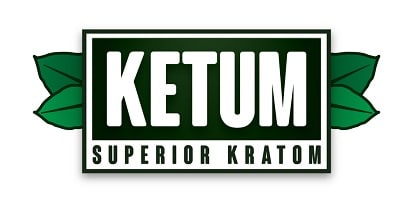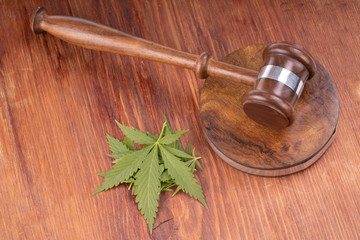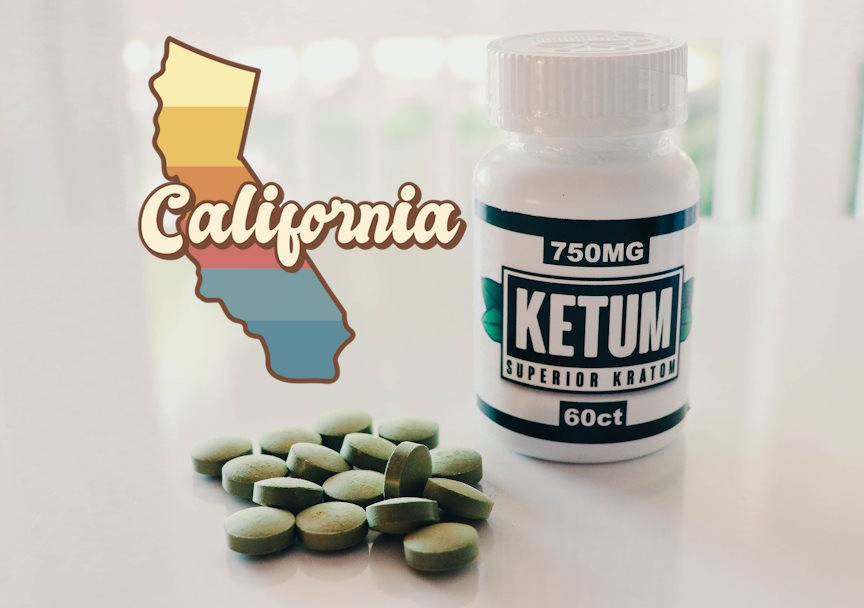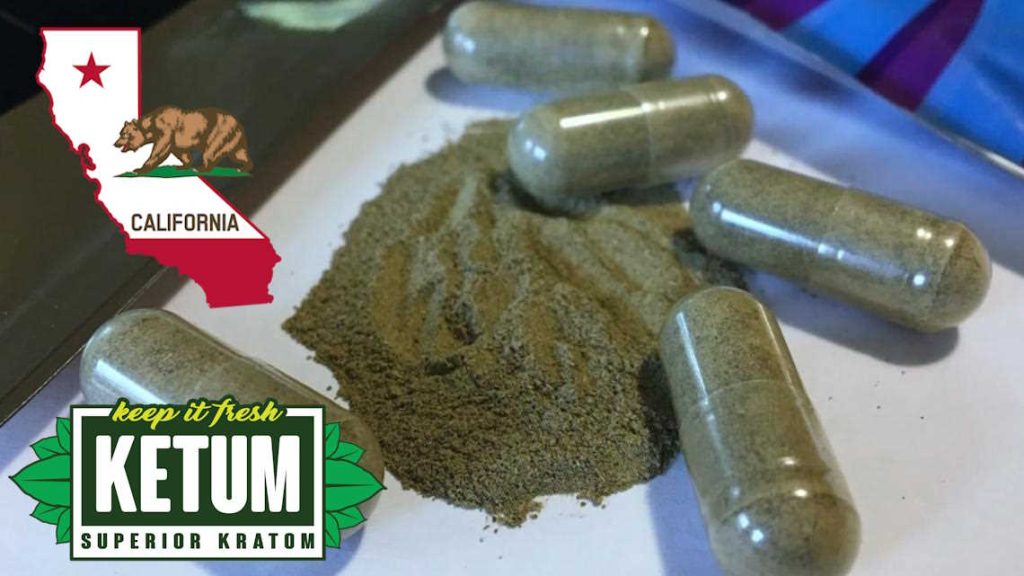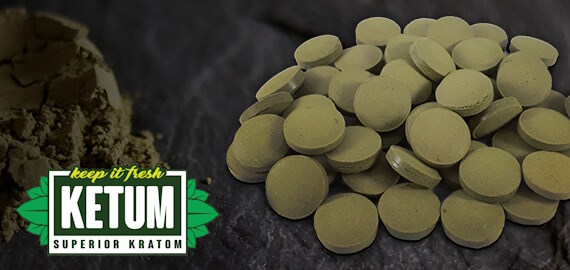You may have heard about the “magical plant” Kratom, known for its healing and stimulative properties. The herb is traded and consumed by people worldwide.
But with all these good things you hear about the plant online, you may also have heard several myths and controversies revolving around the nature of this herb. Does that lead you to an obvious question: is Kratom’s legality for purchase despite its many controversies?
Most medical personnel, policymakers, and government administrations view the naturally procured substance as harmful to human health.
With such a wide availability and surprising benefits of Kratom, why is it still considered an illegal herb across many states and countries worldwide? Let’s crack the code behind the controversy of this mysterious drug.
Despite the huge popularity of the drug, there are still numerous controversies behind its use, and it is known to have drastic adverse effects on its consumers. While the enthusiasts consider it a healing agent for several medical conditions, others deem it a harmful substance relating to notorious drugs like marijuana.
According to a National Institute of Drug Abuse (NIDA) study, consuming certain amounts of Mitragyna can cause dependency on the herb. Meaning, in the case of abstinence from the substance, people can experience physical withdrawal symptoms.
Chemistry
Mitragyna Speciosa has a rich alkaloid presence that determines its higher potency than other stimulative or sedation-causing drugs. The Journal of Natural Products study shows higher amounts of indole alkaloids that induce the body’s opioid receptors. The psychoactive chemical compounds include Mitragynine, 7-hydroxy mitragynine, Payanthinine, Raubasine or Ajmalicine, Corynantheidine, Mitraphylline, Mitragynine Pseudoindoxyl, and many others.
Adverse Effects of Kratom
Kratom can lead to many drastic health issues if consumed for an extended period without any caution. Some of the common side effects of the herb are:
- Loss of appetite
- Muscle spasms
- Weight Loss
- Anorexia
- Respiratory depression
- Liver toxicity
With all these harmful effects and without any medical claim that supports the herb’s therapeutic effect, the legality status of the drug is in question.
The Legality Status of Kratom in Asia
Kratom has had to deal with skepticism from all over the world, including Asia – the indigenous home of Speciosa. The herb has had a hard time with policy-making organizations and governments in various Asian states. Although, the stimulative herb was still being cultivated and consumed by the locals behind closed doors.
China – the largest country in Asia, has neither referred to it as a legal or illegal substance. However, people are still advised to be cautious while dealing with the Kratom plant, as most Chinese residents consider it illegal.
India, on the other hand, is one of the few countries where the awareness about Korth is too little. However, many consider it to be a legal herb in the current scheme of things. Some Indian states are known to produce a similar herb that is closely related to the Kakuam family.
Kratom Banned Countries of Asia
Mitragyna is entirely banned in South Korea and Japan. The South Korean government has also imposed huge penalties, including Jail time if someone is caught dealing in Biak.
ASEAN – Association of Southeast Asian Nations has termed this herb as an illegal drug. The association has imposed a complete ban on the trade – inside and outside of the country and consuming medicines and drugs carrying Kratom or its derivatives. The ASEAN countries include:
- Malaysia
- Myanmar
- The Philippines
- Brunei
- Indonesia
- Cambodia
- Thailand
- Vietnam
- Singapore
- Laos
Some of these countries are amongst the leading producers and exporters of the world’s finest quality Kratom, such as Malaysia, Thailand, Vietnam, and Indonesia. Before the start of the 20th century, these ASEAN states were considered a sanctuary for the plant.
As the markets began to expand and researches started being made on the substance, the policymakers across these Asian states came into action. Nevertheless, the anti-Kratom policies made weren’t backed by strict action.
Kratom Farming and Trade in Southeast Asia – Regulated or Forbidden?
Despite being a part of ASEAN, there is still some uncertainty and confusion regarding prohibition laws in high Mitragyna producing countries. Indonesia and other relative countries produce almost 95% of the herb shipped into the US.
Nevertheless, the Indonesian Minister of Health has imposed strict restrictions on all kratom-related activities. According to the sources, there is still a 5-year transition period before the ban is fully imposed. Several enthusiasts and activists are working to nullify the ban before it is even enforced.
Thailand in 1979 ranked the herb as a category five narcotic drug, meaning any Mitragyna related activity within the country’s borders was declared unlawful. The policy led to multiple arrests and huge fines of up to 200,000 baht (USD 6500). However, in 2018 the Thailand government amended the policy stating farming and consumption of the herb legal, under the banner of medicinal drugs.
Malaysia, Myanmar, and Vietnam have enforced severe crackdowns against citizens dealing with kratom. The law enforcement agencies of these countries destroyed Speciosa farms, arresting farmers and dealers, and imposing massive fines in an effort to curb the use of the so-called narcotic drug.
While the laws declare cultivation, harvest, and trade of the plant as highly punishable crimes in these countries, farming and exportation are still being carried out through unofficial channels. Many Kratom specialists advise never to purchase the herb directly from these states as it is illegal, but the Biak is not lab-tested to be stated as safe.
As the herb is exported through illicit channels, there is a high probability of adulteration and contamination. This is why most vendors in the US and Europe make multiple quality assurance checks before supplying into the market.
How the European Union Perceives Kratom
The European Union was established to facilitate ease of trade and access throughout all European states. Although the European Union has the authority to issue laws that all states must abide by. However, in the case of banning or legalizing a substance, each country has complete autonomy to do so.
But the decisive law or policy in one country directly or indirectly impacts the other one, which is called the mutual recognition principle. Suppose if one country is to legalize the trade and Consumption of Mitragyna powder within its borders, the neighboring country might also be inclined to do the same with no strict policy.
General rulings about Kratom vary from country to country. Some countries have declared the drug illegal, while others have refrained from adopting strict policies. Let’s take a view of each of them.
European Countries that have legalized and Regulate the Use of Kratom
Some countries have legalized Kratom. Others have taken counteractive measures to regulate the use of kratom within their borders. Instead of completely banning the substance, the government institutions issue authorization permits to people who want to buy, sell or consume Kratom. Such countries are:
Austria – The use of Biak is completely permitted in the country. There are also adequate numbers of vendors within some vicinities.
Belgium – The country has legitimized all kinds of dealing related to Korth.
Cyprus – it is legal to trade and use Mitragyna in the country.
Czech Republic – it is one of the very few countries in Europe where the demand for the use of the plant is gradually growing.
Denmark – Since 2009, the Danish state has been monitoring all Speciosa-related activities.
Estonia – After being classified as a narcotic drug, any access towards the acquisition or use of substances can only be made through special authorization permits.
Germany – Although there is confusion about the drug’s legitimacy status in the country, it is fully legal.
Greece – the use of Korth is legal within the Greek borders.
Hungary – the use of the drug is closely monitored in the country but only for animal consumption. It is still banned for humans in the country.
Iceland – the status of the herb falls under the medicines product act of Iceland, making it a controlled substance in the country.
Lithuania – Kakuam is referred to as a true narcotic drug and has been under strict surveillance since 2008.
Luxembourg – The Mitragyna powder is a controlled substance in the country as of 2012.
Malta – The medicinal plant is completely legal in the country.
Moldova – After 2010, the Kratom has been under the direct control of governmental agencies.
Netherlands – Owing to the drug-tolerant policy of the country, Speciosa has gained quite popularity in the country.
North Macedonia – The drug is currently legal in the country; however, lawmakers are determined to issue a newer policy that might put its legitimacy status in danger.
Norway – The use of Speciosa is controlled in the country and can only be prescribed by a doctor. Any unauthorized trade of the drug is banned.
Portugal – Any type of trade regarding the use of the plant is prohibited. However, having personal possessions of the drug has been decriminalized since 2001.
Slovakia – Despite harsh laws against drugs, the use of Korth is legal.
Spain – Kratom is not only legal in the country but has gained a substantial customer base in the country.
Sweden – Though the drug is considered illegal yet it can be easily availed through online sources.
Turkey – Mitragyna is included in the country’s list of monitored drugs.
Ukraine – The stimulative plant is completely lawful to sell and to use.
European Countries that declared Kratom as an Unlawful Substance
Belarus – owing to the strict dictatorship rule in the country, Korth is strictly off-limits for its citizens.
Bulgaria – As of 2011, the therapeutic drug has been declared unlawful by the Balkan government for both human and animal consumption.
Croatia – In addition to prohibiting the herb, the country also takes strict action against individuals caught in its trade and use.
Finland – Since 2014, the use of Speciosa within the country’s borders has been officially illegitimate.
France – Biak was a legal substance to sell and consume until recently before it was banned in 2020 after being declared as a psychoactive drug.
Ireland – Mitragyna is prohibited for use according to the Misuse of Drugs Regulation 2017.
Italy – Korth has been officially banned in the country since 2016. However, efforts are being made to legalize the drug.
Latvia – the medicinal herb is banned in the country as a highly psychoactive drug.
Poland – The country has outlawed the use of Biak as of 2009.
Romania – with its strict policy against drugs, Korth has been an illegal drug since 2010.
Russia – Although alcohol use is permitted in the country, the Russian government has maintained a stricter policy against drugs, including Kakuam, since 2011.
Slovenia – The country had recently removed the legitimate status of the drug in 2019.
United Kingdom – the plant has been banned in the UK since 2016.
Switzerland – The government has labeled the plant as psychoactive and has imposed a ban on the drug from 2017 onwards.
Other European countries like Albania, Bosnia, Kosovo, Montenegro do not have much awareness about the drug so far, which leads them into a grey area.
Kratom Legality in the US – The Largest Kratom Consuming Country
The opiate-like drug has acquired a massive consumer population in the US. Although each state has its laws and regulations, buying, selling, and consuming the plant is fully legal in most of the states.
In the early 20th century, when the drug made its way into the American markets, most people weren’t aware of its effects and benefits. But as its popularity grew as an energizing supplement, rumors and misguided information followed along.
Despite strong allegations against Mitragyna as a healing herb, the American Kratom Association is working hard to ensure the legality of the plant. Several medical professionals and policymakers work in favor of the association to educate the masses about the benefits of the plant.
The FDA and DEA Assessments for Kratom
Whilst the natural substance is used far and widely in many areas across the US, several health and drug profiling agencies are still hesitant to legalize it officially. According to them, the medical research that has so far been made on the supplement is insufficient and unreliable.
On account of the reports submitted from 2005 to 2015, which showed poisoning from Biak, the drug was officially banned by the Food and Drug Administration authorities. In 2019, the eligibility of Korth as a medical supplement was declared null and void, and the commercial products carrying quantities of the opiate-like herb were testified to be unsafe.
In a recent press release by the agency, FBA has announced the confiscation of Kakuam containing dietary supplements worth 1.3 million USD on May 21, 2021. Although, the authorities are demanding enough evidence to declare the profile as safe. Therefore, due to its psychoactive components that can cause addiction and continuous dependency, the plant is still listed as an unapproved drug.
The Drug Enforcement Administration (DEA), as of 2016, has included the psychoactive components and alkaloids present in the herb, has included it in Schedule I of the Controlled Substances Act.
The US States Legalize the Use of Kratom
Despite these restrictions and import bans, each US state has the liberty to issue laws and general rulings of their own accord. The buying, selling, and consuming Kratom is either entirely legitimate or is regulated for use in the following states:
Alaska – The plant is currently legal in the state.
Arizona – the state passed the KCPA (Kratom Consumer Protection Act) to regulate the use of plants in the state, which makes it legal in Arizona.
California – Apart from San Diego, the trade and use of the herb are legal everywhere in the state.
Colorado – It is legal to use kakuam in Colorado, except for Parker, Monument, and Denver.
Connecticut – The sale and use of Korth are legal.
Delaware – The natural substance is completely legal to sell and use.
Florida – The state has legitimized the use of drugs except for Sarasota county, which has prohibited its use since 2014.
Georgia – Mitragyna is authorized to use and is protected by the KCPA resolution passed in 2019.
Hawaii – Although the herb is currently legal, there is a pending bill that could completely ban its use.
Idaho – the state has legalized the special plant.
Illinois – the selling and use of drugs are legalized, but after 2014, age restrictions have been imposed. Jerseyville and Alton have imposed a ban on the substance.
Iowa – Despite a bill filed against its validity in 2014, Speciosa is still legal to consume.
Kansas – the stimulative herb is legal to use in the state. The KCPA bill has also been under review by the Kansas administration since March 2019.
Kentucky – The substance is legal to use in the state, despite including it into the list of scheduled I drugs.
Louisiana – Kratom is currently legal in the state.
Maine – The energizing plant has legal status in the state regardless of the plea for its ban in 2017.
Maryland – Although Biak is legal at the moment in the state, there is a bill pending in the senate since 2020 to ban the plant completely.
Massachusetts – It is permitted to use the drug within the state’s borders.
Michigan – The natural substance is legal; however, there is pending legislation from 2019 which can ban the product if passed.
Minnesota – Kakuam is authorized for use in the state but with age restrictions implemented in 2018.
Mississippi – It is legal although the opiate-like herb is considered illegal in 33 counties across the state.
Missouri – the state offers a legitimized status to the plant; however, a ban is expected in some state counties.
Montanna and Nebraska – Speciosa is completely legal to sell, buy, and consume in both states.
Nevada – the natural herb is legal but is adequately regulated by the KCPA.
New Hampshire – Korth is authorized for use but with certain age restrictions. The herb is considered illegal in Franklin City.
New Jersey – the plant is legal in the state.
New Mexico – The herb has legitimate status in the state.
New York – Despite the several attempts to ban the drug, it is still considered completely legal.
North Carolina – The drug is legal for use but only for certain age limits.
North Dakota – The substance is completely legal.
Ohio – Kratom is currently legal in the state. However, there is legislation pending by which KCPA would be required to monitor all trade regarding the substance.
Oklahoma – Despite trying to ban the drug in 2014, it is still entirely legal for use.
Oregon – the plant is authorized for use at the moment. However, there is an expected ban in the future that would result in a severe crackdown against Korth dealers.
Pennsylvania – Kakuam is legal, but according to legislation, FDA is required to issue safety guidelines for its use.
South Carolina and South Dakota – The healing herb is completely legal to use in both states.
Tennessee – Although the product is considered legal, sales are properly regulated.
Texas – Biak is entirely legal in the state.
Utah – it is legal and regularized by the KCPA as of 2019.
Virginia – Despite an effort to ban the herb in 2016, it is legal for use.
Washington – Speciosa is legal here without any regulations.
Wyoming and West Virginia – the natural substance is entirely legal in both states.
Kratom Stays Prohibited in the US States
Alabama – The state government included Alabama in Schedule I drugs in 2016, which led to a complete ban on the plant.
Arkansas – Biak is counted as a Schedule I drug and has been illegal since 2015.
Rhode Island – Speciosa is considered illegal in the state. KCPA has produced a bill to legitimize the herb in the future.
Vermont – The substance is considered illegal for use within the state’s borders.
Wisconsin – As of 2014, Kratom is prohibited for use in the state.
Canada has Prohibited the Use of Kratom.
The Canadian Food Inspection Agency and the Institute of Health Canada have deemed the herb unsafe for human consumption. Owing to its psychoactive properties and an increased alkaloid level, the naturally procured drug is banned across Canada. The Canadian authorities have also put several penalties in place if someone is caught dealing with the drug.
Despite being an illegal drug in the country, it can be easily procured through unofficial means. Citizens can acquire it under the “not fit for human consumption” label.
The popularity of Kratom Grows in Mexico.
Biak is steadily gaining popularity with a massive consumer base across the country. The Mexican government has not yet reviewed the situation of the herb enough to declare it as an illegal substance or regularize it to any sort. So, carrying and consuming the plant in Mexico won’t be an issue.
Kratom Laws in Australia and New Zealand
Mitragyna Speciosa has been completely banned in Australia since 2005. According to the Drug and Poisons Schedule Committee, the natural substance carries harmful psychoactive elements like Mitragynine and 7-Hydroxymitragynine included in the schedule 9 list. Therefore, the sale, purchase, import, and consumption of Korth are considered illegal in the country.
New Zealand has adopted a similar stance to the legality of Kratom. New Zealand’s administration counts the substance as a Schedule I drug and can only be obtained by the doctor’s prescription.
The Future of Kratom Legality
With the fast pace that Kratom is gaining popularity with and more and more people become aware of the impressive properties of the substance, it is likely to have a bright future ahead. The policymakers worldwide acknowledge its surprising effects, which is why they are more inclined to legitimize the product in their respective countries.
